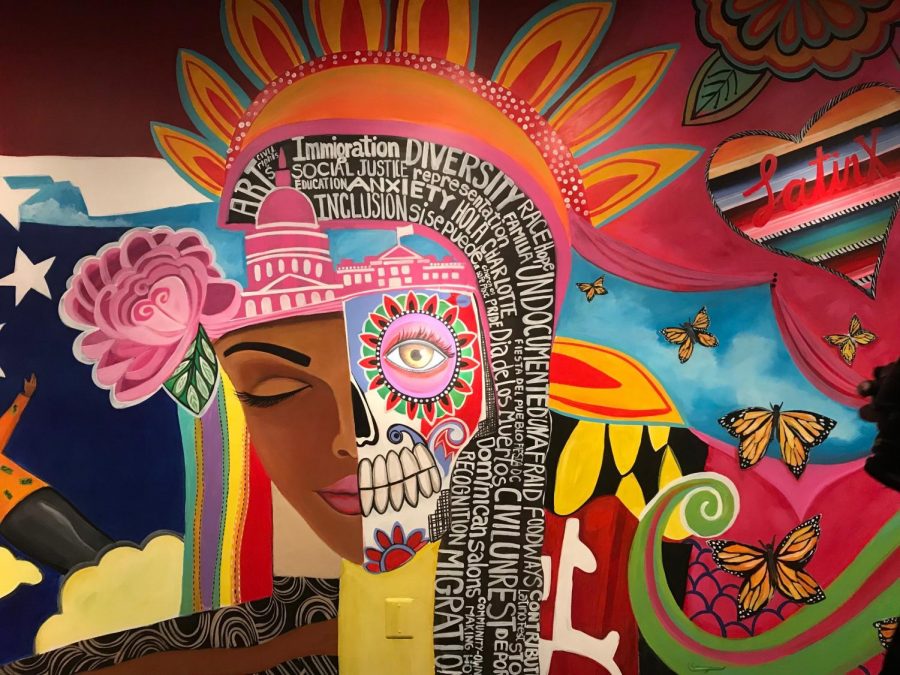
National Hispanic Heritage Month is celebrated each year from September 15th until October 15th! Hispanic Heritage Month honors the histories, cultures and contributions of all those whose ancestors came from Spain, Mexico, the Caribbean, and Central and South America.
Historical Context

The term Hispanic or Latino (or the more recent term Latinx) refers to a person’s culture or origin—regardless of race. On the 2020 Census form, people were counted as Hispanic or Latino or Spanish if they could identify as having Mexican, Mexican American, Chicano, Puerto Rican, Cuban, or “another Hispanic, Latino, or Spanish origin.”
Hispanic Heritage Month actually began as a commemorative week when it was first introduced in June of 1968 by California Congressman George E. Brown. The push to recognize the contributions of the Hispanic community had gained momentum throughout the 1960s when the civil rights movement was at its peak and there was a growing awareness of the United States’ multicultural identities.
Brown, who represented East Los Angeles and a large portion of the San Gabriel Valley—both heavily populated by members of the Hispanic and Latinx communities—wanted to recognize the role played by those communities throughout American history.
On September 17, 1968, Congress passed Public Law 90-48, officially authorizing and requesting the president to issue annual proclamations declaring September 15 and 16 to mark the beginning of National Hispanic Heritage Week and called upon the “people of the United States, especially the educational community, to observe such week with appropriate ceremonies and activities.” President Lyndon B. Johnson issued the first Hispanic Heritage Week presidential proclamation the same day.
The timing of Hispanic Heritage Month coincides with the Independence Day celebrations of several Latin American nations. September 15 was chosen as the kickoff because it coincides with the Independence Day celebrations of five “Central American neighbors,” as Johnson called them—Costa Rica, El Salvador, Guatemala, Honduras and Nicaragua. Those five nations declared their independence from Spain on September 15, 1821.
In his proclamation, Johnson also acknowledged Mexico, which declared its independence from Spain on September 16, 1810. Although not mentioned specifically by Johnson, Chile also celebrates its independence during that week (September 18, 1810 from Spain) and Belize, which declared its independence from Great Britain on September 21, 1981, was subsequently added to the list of nations specifically celebrated during what is now Hispanic Heritage Month.
- https://www.oprahmag.com/hispanic-heritage-month/
- https://www.nationalgeographic.com/history/reference/holidays/everything-need-know-hispanic-heritage-month/
- https://ptaourchildren.org/tag/hispanic-heritage-month/
- Hispanic Heritage Month ‑ Origins & Facts | HISTORY

Although your student(s) celebrate and learn about cultures through our curriculum all year long, having a calendar reminding busy families of heritage observances can be a great way to prioritize cultural exploration for your family. Here is a list of celebrations, holidays, and heritage months you can include on your family calendar:
| January
|
15: Martin Luther King, Jr. Day
27: Holocaust Remembrance Day 29: Chinese New Year, 2024 |
| February
|
Black History Month
1: National Freedom Day |
| March
|
Women’s History Month
8: International Women’s Day March 13- April 15: Deaf History Month 31: International Transgender Day of Visibility |
| April
|
Celebrate Diversity Month
Autism Awareness Month 2: World Autism Awareness Day |
| May
|
Asian Pacific American Heritage Month
Jewish American Heritage Month |
| June
|
Lesbian, Gay, Bisexual, and Transgender Pride Month
15: Native American Citizenship Day 19: Juneteenth, also known as Freedom Day or Emancipation Day |
| July | 26: Disability Independence Day
30: International Day of Friendship |
| September
|
September 15- October 15: Hispanic Heritage Month |
| October | 2-4: Rosh Hashanah, the Jewish New Year celebration, 2024
12: National Indigenous Peoples Day |
| November
|
National Native American Heritage Month
27: Native American Heritage Day |
| December
|
December 25 – 2: Hanukkah 2024-25
3: International Day of Disabled Persons 26-January 1: Kwanzaa 2024-25 |
